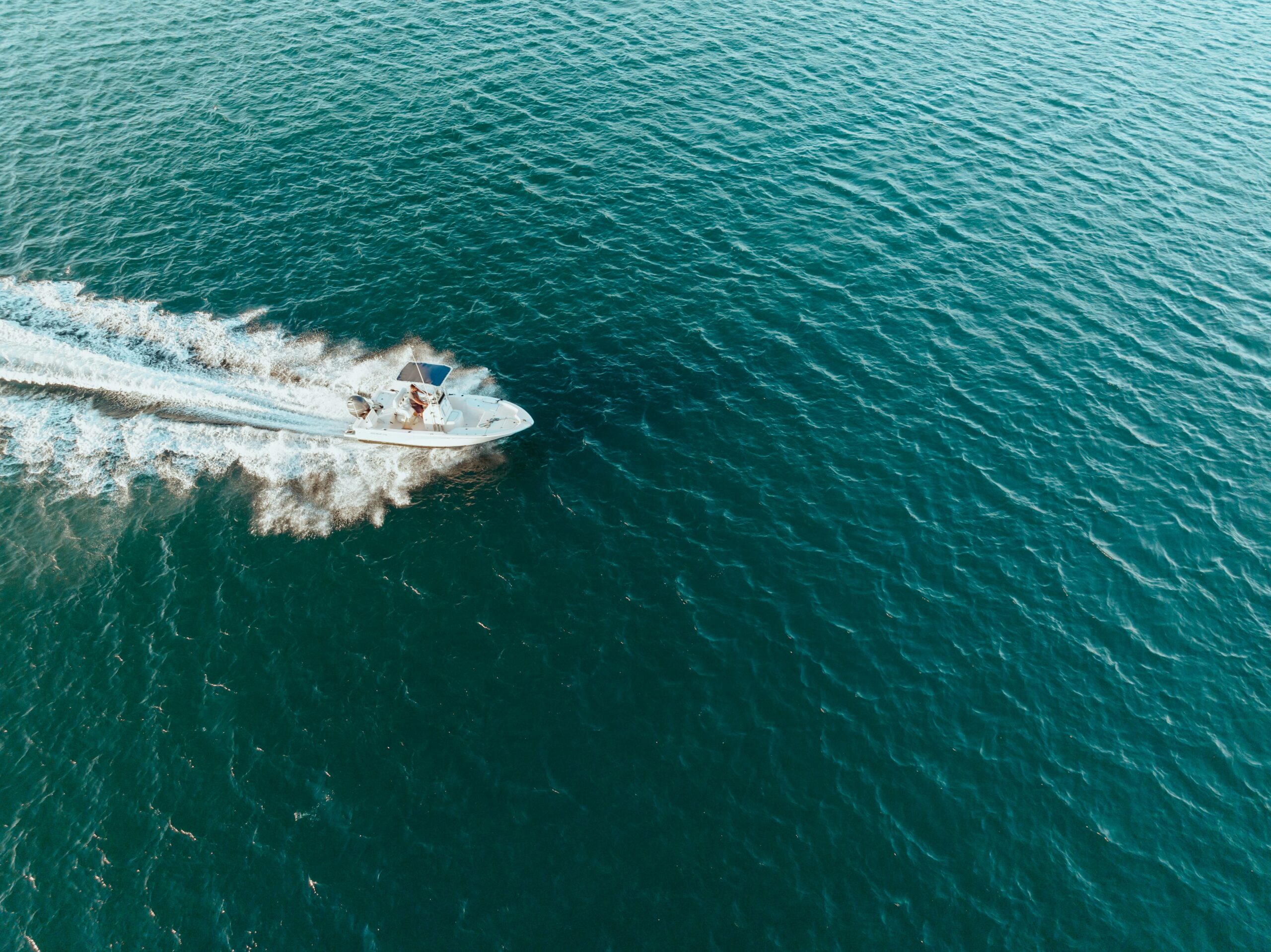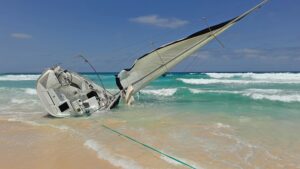Learn about what type of report must be filed in a boating accident in Florida. Discover when reports are mandatory and how to file them correctly to comply with state law.
Florida’s stunning coastlines and numerous inland waterways make it a boater’s paradise. With over 900,000 registered vessels, the Sunshine State leads the nation in recreational boating. However, this popularity comes with a responsibility to prioritize safety and adhere to state regulations.
Florida’s boating laws are designed to protect both operators and passengers while preserving our precious marine environments. Key regulations include:
- Mandatory boater education for operators born on or after January 1, 1988
- Life jacket requirements for all passengers
- Speed limits in manatee zones and congested areas
- Prohibitions on boating under the influence (BUI)
- Age restrictions for personal watercraft operation
Understanding and following these rules is crucial for all boaters, whether you’re a seasoned captain or a first-time renter. In this guide, we’ll break down the importance of reporting boating accidents, outline the necessary steps to take in the event of an incident, and explain the legal requirements and potential consequences of failing to report.
Reporting Requirements
Despite taking all possible precautions, accidents can occur on the water at any time. In Florida, boating accident reporting is a legal obligation designed to ensure safety and accountability. Operators must report any boating accident that results in:
- Death or Disappearance of a Person: If a boating accident leads to the death of an individual or if someone goes missing, it must be reported immediately.
- Injury Requiring Medical Treatment Beyond First Aid: Accidents that cause injuries necessitating medical treatment beyond basic first aid are required to be reported. This includes injuries that require professional medical evaluation or hospitalization.
- Property Damage of $2,000 or More: Any accident that results in property damage amounting to $2,000 or more must be reported. This threshold includes damage to the vessel itself, as well as damage to other property or structures
Additionally, if a vessel is deemed a total loss—meaning it is significantly damaged or destroyed to the extent that it is no longer operable or economically repairable—this must also be reported, regardless of the vessel’s value.
These reporting requirements apply to all types of vessels operating in Florida waters, including motorboats, sailboats, personal watercraft (such as jet skis), and even non-motorized craft like canoes and kayaks. Understanding and adhering to these reporting requirements is crucial to ensure compliance with Florida law and contribute to overall boating safety.
Time Frame for Reporting an Accident
The timing of your report depends on the severity of the accident:
- Immediate Reporting: For accidents involving death, disappearance, or injury requiring medical treatment beyond first aid, you must report the accident immediately. Contact the Florida Fish and Wildlife Conservation Commission (FWC), county sheriff’s office, or nearest police department without delay.
- 48-Hour Reporting: For accidents resulting in death or disappearance, you must also file a written report within 48 hours of the incident.
- 10-Day Reporting: For accidents involving only property damage or minor injuries, you have 10 days to file a written report.
It’s crucial to adhere to these timeframes to avoid potential legal consequences. Failure to report a reportable boating accident is a criminal offense in Florida and can result in fines or even imprisonment.
Criteria for Reporting
Injury or Fatality
- Reporting is mandatory if any person suffers an injury requiring medical treatment beyond first aid.
- In case of a fatality, the accident must be reported immediately to law enforcement.
- For injuries, the operator must file a written report within 48 hours if the injured person receives medical treatment beyond first aid.
- Even if injuries appear minor initially, it’s advisable to report if there’s any doubt, as some injuries may worsen over time.
Property Damage
- Accidents resulting in property damage of $2,000 or more must be reported.
- This includes damage to vessels, docks, buoys, or any other property involved in the accident.
- The $2,000 threshold is cumulative, meaning it applies to the total damage across all affected property, not just a single vessel or item.
- Operators should file a written report within 10 days for accidents involving only property damage.
Vessel Loss
- Any accident resulting in the total loss of a vessel must be reported, regardless of the vessel’s monetary value.
- “Total loss” typically means the vessel is destroyed, sunk, or damaged beyond repair.
- Even if the vessel is later recovered or salvaged, the initial loss still requires reporting.
- The report should be filed within 10 days of the incident.
Missing Person
- If a person disappears from the vessel under circumstances that indicate death or injury, it must be reported immediately.
- The operator should contact the Florida Fish and Wildlife Conservation Commission (FWC), local sheriff’s office, or nearest police department without delay.
- A written report must also be filed within 48 hours of the incident.
- Even if the missing person is later found unharmed, the initial disappearance still requires reporting.
It’s important to note that these reporting requirements apply to all vessel operators, whether they’re at fault or not. Failure to report when required can result in criminal charges, including second-degree misdemeanors punishable by up to 60 days in jail and/or a $500 fine.
Remember, when in doubt, it’s always better to err on the side of caution and report the accident. Timely and accurate reporting not only fulfills legal obligations but also contributes to overall boating safety by helping authorities identify and address potential hazards or dangerous practices.
Reporting Process
If you or a loved one are involved in a boating accident and have been injured or suffered damage, it’s crucial to seek medical attention immediately. Follow these steps to report the accident properly under Florida law:
Report the accident as quickly as possible to one of the following authorities:
- The Division of Law Enforcement, Florida Fish and Wildlife Conservation Commission.
- The County Sheriff in the jurisdiction where the accident occurred.
- The police department of the municipality where the accident occurred.
Ensure you have all the necessary information for the report, including:
- Date, time, and location of the accident.
- Details of the vessels involved.
- Contact information of the operators and passengers.
- Description of injuries and property damage.
- Collect witness statements from any witnesses to the accident
- Water and weather conditions at the time of the accident
Similar to any personal injury accident, gathering and submitting as much evidence as possible is crucial. Be sure to attach any relevant photos, videos, or diagrams that help illustrate the incident. This evidence can provide a clear picture of the accident’s circumstances and contribute to a more accurate investigation.
Submit the Report
Follow the specific process required by the authority you are reporting to, whether it’s through a phone call, online form, or in-person visit. The authority official will make sure you provide all the necessary information and guide you through the steps to ensure the report is complete and accurate.
Legal Consequences
It’s essential for all vessel operators to understand the reporting requirements for boating accidents in Florida, as failing to report can result in significant penalties. The state enforces these rules strictly, and non-compliance can lead to substantial consequences.
Potential Penalties for Failing to Report a Boating Accident
- Criminal Charges: Failure to report a reportable boating accident is classified as a second-degree misdemeanor under Florida law. This can result in up to 60 days in jail and/or a fine of up to $500.
- Additional Penalties: The court may impose a requirement to complete a boating safety course.There’s a possibility of license suspension or revocation for repeat offenders.
- Civil Liability:Failure to report can be used against you in civil lawsuits related to the accident. It may be seen as an attempt to evade responsibility, potentially affecting judgments or settlements.
- Insurance Implications:Non-reporting may violate the terms of your boat insurance policy.This could lead to denial of coverage for damages or injuries resulting from the accident.
Importance of Compliance with State Laws
Properly reporting boating accidents is crucial for several reasons. Legally, it creates a formal record of the incident, which can be essential in resolving disputes and demonstrating responsible behavior during legal proceedings.
From a safety perspective, accident reports contribute valuable data to state and national boating safety statistics, helping identify trends and implement measures to prevent future accidents. Timely reporting also facilitates prompt investigations, allowing for fresh evidence to be examined, which can be critical in determining fault and resolving insurance claims.
Ethically, reporting accidents upholds the standards expected of boat operators, fostering a culture of safety and responsibility on Florida’s waterways. It also helps avoid escalated penalties; if an unreported accident is later discovered by authorities, the consequences may be more severe.
Voluntary reporting is generally viewed more favorably than concealment. Lastly, compliance with all boating laws, including accident reporting, is essential for maintaining your right to operate a vessel in Florida waters.
Conclusion
We hope this guide has clarified the type of report required for boating accidents in Florida. While safety remains the top priority, remember that timely and accurate reporting is crucial. Following the proper procedures not only ensures compliance with state regulations but also supports overall safety and accountability on the waterways.
At Porcaro Law Group, we strongly encourage all vessel operators to adhere to state regulations regarding accident reporting to maintain both safety and legal compliance. For any questions or assistance related to a recent boating accident, please reach out to Peter J. Porcaro for expert guidance and support through the complexities of boating accident claims and legal matters.
FAQ
1. What is the threshold for property damage that requires reporting?
In Florida, property damage of $2,000 or more must be reported.
2. How soon must a boating accident be reported?
Accidents must be reported within 48 hours if there is a fatality or a person is missing. For other reportable accidents, the report should be made as soon as possible.
3. Where can I file a boating accident report?
Reports can be filed with the Florida Fish and Wildlife Conservation Commission (FWC) or local law enforcement agencies.
4. What information do I need to include in the report?
Include details such as the date, time, and location of the accident, information about the vessels involved, and any injuries or damages.
5. What are the consequences of not reporting a boating accident?
Failure to report a boating accident can result in fines and legal penalties. It’s crucial to comply with state laws to avoid these consequences.


